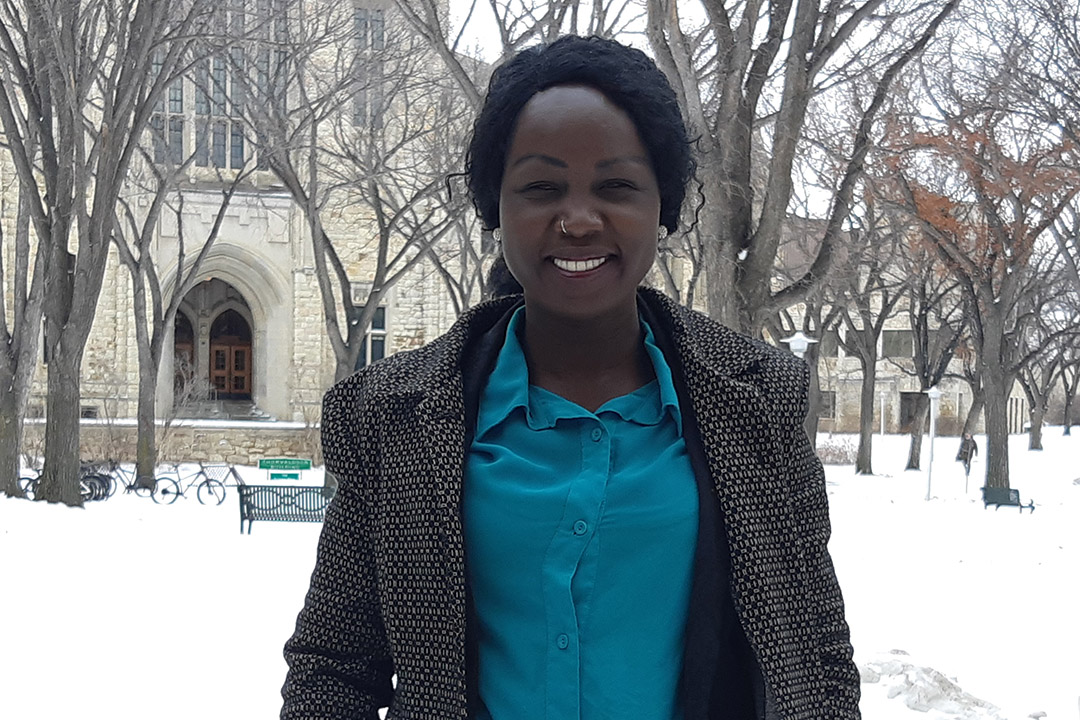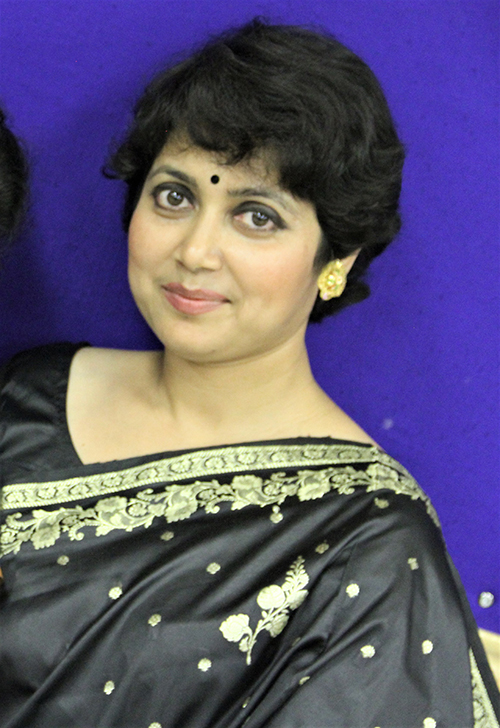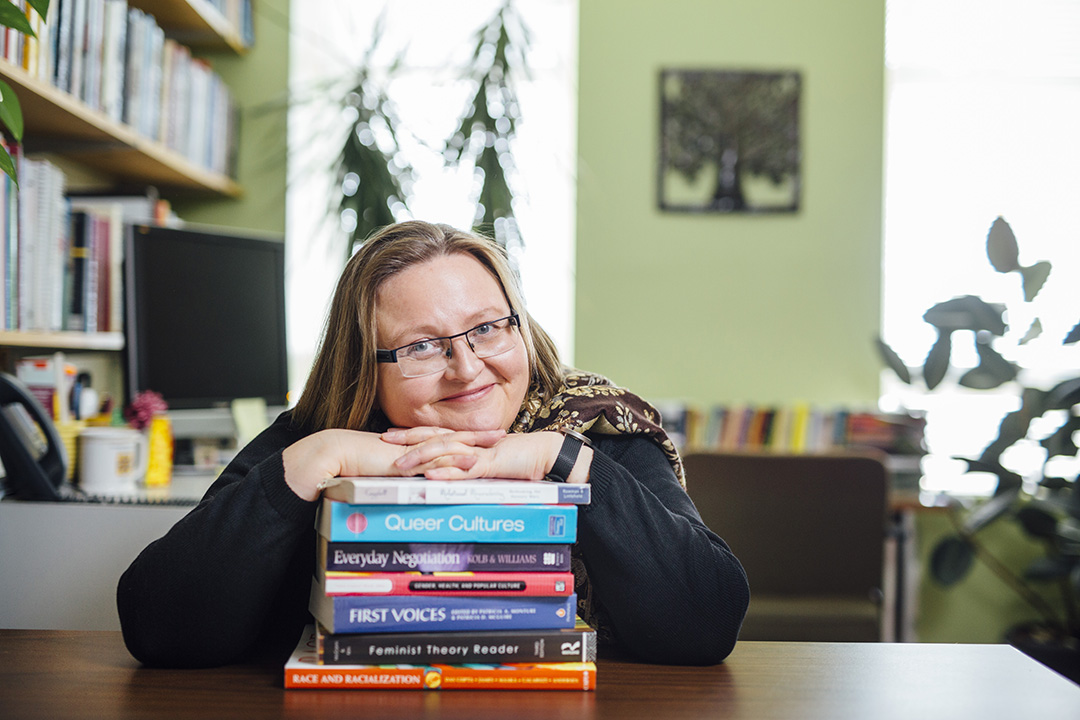
‘It’s all about thinking critically’: USask students reflect on their education in advance of International Women’s Day
As International Women’s Day approaches, University of Saskatchewan (USask) students are reflecting on gender relations and the tools their post-secondary education has given them to analyze inequity in society.
By Shannon BoklaschukInternational Women’s Day (IWD), held on March 8 in countries around the world, is a global day of recognition celebrating the social, economic, cultural and political achievements of women and girls. It also raises awareness of the work left to be done.
“We still live in a world that needs a lot of structural change,” said USask student Sarah Tut.
According to Statistics Canada, 61.4 per cent of Canadian women participated in the labour force in June 2019, compared to 70.1 per cent among men. In 2016, less than one out of five leadership roles were held by women in Canada.
Globally, women earn 23 per cent less than men and occupy just 24 per cent of parliamentary seats worldwide, according to statistics from the United Nations. One in three women experiences physical or sexual violence, and 200 million girls and women have suffered genital mutilation.

Tut, who is originally from Sudan, came to Canada in 2001. She is a full-time student, studying sociology and women’s and gender studies (WGST) in the College of Arts and Science. She said she decided to major in sociology after taking some classes that opened her eyes to what’s going on in society.
“It made me think about all the wars and social issues going on globally, including in my country and why I came to Canada,” she said.
Tut is currently in the fourth year of her sociology degree, with a minor in WGST. She sees the two areas of study as complementary, and has learned how the unique intersections of people’s identities—such as gender identity and expression, race, sexual orientation, socioeconomic status, and physical and mental ability—impact people’s lived experiences in the world. She noted her experiences as a Black woman, a mother and a refugee will not be the same as the experiences of people with different identities.
“It’s all about thinking critically,” she said.
Tut, a mother of four, attends USask with her 18-year-daughter, who is also a student in the College of Arts and Science. Tut is passionate about young women having access to education and about social justice, and she hopes to work with refugees, young people or women once she receives her degree.
Like Tut, fellow USask student Betty Mkala-Hunsu has been impacted by her university courses and what she has learned. Mkala-Hunsu, who is originally from Kenya, came to USask in 2017 to pursue a master’s degree in WGST after completing her undergraduate studies in Finland.
Mkala-Hunsu said she has “learned a lot” in her program, and is planning to write a thesis focusing on immigrant seniors and their experiences in Canada. She said she chose WGST because she wants to see women empowered and educated about their rights, particularly in the workplace.
“I’ve seen a lot of times where a woman has to give into some pressures just because she’s a woman,” she said.
While Mkala-Hunsu understands the intent of IWD, she also wants to see discussions about gender inequity followed by action—not only on one day each year, but all year long. One of the reasons she is pursuing a master’s degree in WGST is to learn more about what she can do as an individual to help spark change.
“You want to do something, but where do (you) start?”
Jebunnessa Chapola is a feminist researcher, cultural performer, local radio host and a PhD student in WGST. She came to USask in 2014 after completing undergraduate studies in her native country of Bangladesh and pursuing master’s degrees in Sweden and Norway. As a mother of three daughters, she emphasizes the need for society to honour mothers, including Mother Earth and its environments and species.
When asked about gains towards gender equality, Chapola pointed to the #MeToo movement, which she describes as “a milestone.” She said International Women’s Day is important because women are still not safe in this world, and the annual day can help raise awareness of various discriminatory issues.
“IWD is a day to recognize those unheard and unrecognized women who helped to re-write the history. We need to remember those revolutionary women and need to know their courageous history to improve feminist consciousness all around,” she said. “It is a day to celebrate women’s power, strength, and, as a woman, what we bring to the world.”
Chapola’s PhD work at USask is focused on immigrant women’s empowerment through community engagement. She’s also looking at “the building bridge” between immigrant women and Indigenous communities.

Chapola has been particularly interested in learning about Canadian history, Indigenous Peoples and Indigenous history, and the meaning of Reconciliation and decolonization. She said she is grateful for the Indigenous scholars who have advanced this work.
“Connecting with this Indigenous world view, or with this knowledge, is empowering for me,” she said.
Dr. Marie Lovrod (PhD), a professor in the College of Arts and Science and the WGST program chair, said IWD draws attention to the “distorted ways that women’s work is valued, or undervalued, to this day,” noting that even though “the events that precipitated the initial protest marches have been thoroughly examined, economic structures still discriminate on the basis of gender, race, social location and other biases.”
“Having an annual reminder of the distortions of our current socio-economic, political and knowledge systems is critical in helping to create social change,” she said.
Lovrod said gender equity has been slow to advance, even in academe, where “measurable differences in career outcomes are significant across all genders.” She also noted that it’s important to value reproductive labour—“the daily work of sustaining the lives of people and places”—pointing out that much of that work is done by women and is unpaid or underpaid.
Lovrod said it’s a privilege to serve the faculty and students of WGST, and described her colleagues and students as “making constructive differences in the world.”
“Our students are well-respected in employment opportunities. They are critical and creative thinkers who are open-minded and able to see complex issues and problems from many directions, and are, therefore, good at building solutions in collaboration,” she said.

